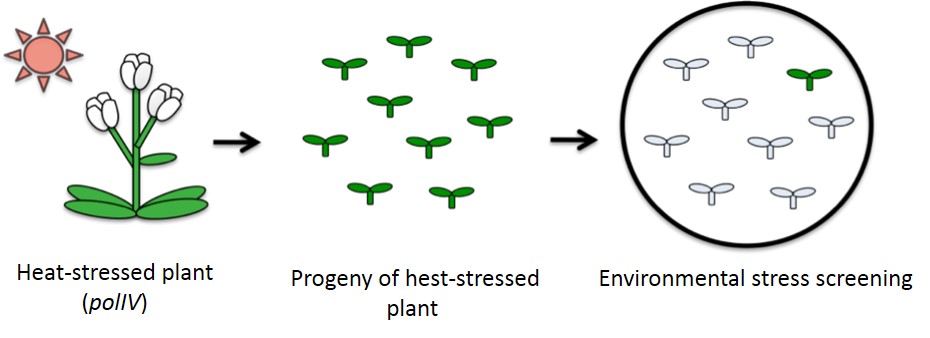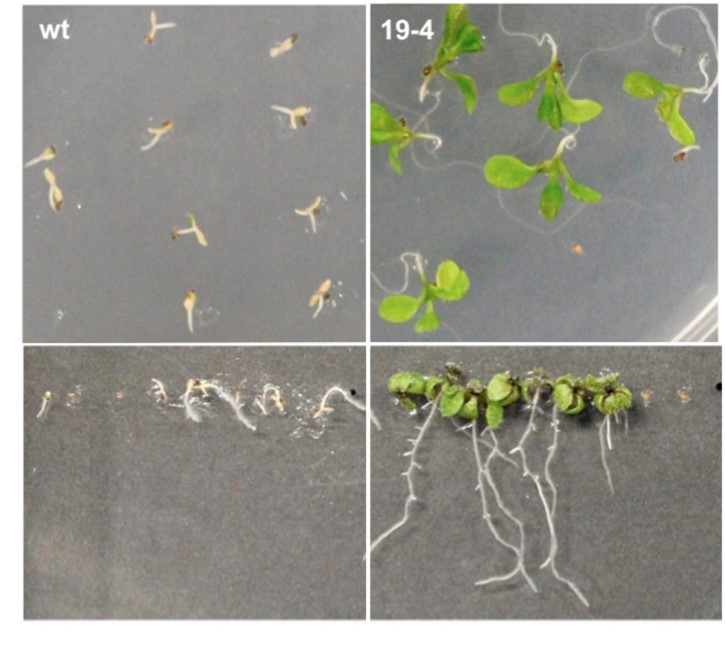Transposons create environmental stress tolerant plants
Research Press Release | April 18, 2016

When Arabidopsis polIV variant is processed at high temperature, transposition group of ONSEN can be obtained in the next generation. Using this transposition group, we searched for individuals showing tolerance to abscisic acid stress.

Fig. 2 Wild strain under ABA stress (left) and the stress tolerant strain obtained by ONSEN transposition (right)
As for the wild strain seeded in a medium containing a high concentration of ABA, its growth stops after germination. However, a variant strain that shows ABA stress insensitivity due to ONSEN insertion can grow.
|
Key Points |
|
|
|
Background |
When Arabidopsis was placed in 37°C for 24 hours, the transposon “ONSEN” was activated because of the high temperature, and an increased number of copies were made within the genome. A stress tolerance test was carried out on this transposed group. As a result, we could find individuals who demonstrated tolerance to plant hormone abscisic acid stress induced by dormancy, growth suppression, or dry stress. Through this study on the genome structure of these individuals, we observed insertion of ONSEN in the abscisic acid-responsive gene and found that the mutant became insensitive to stress by gene function destruction. This study could directly verify that the transposons activated in environmental stress create stress tolerant individuals. |
|
|
Anticipated Outcomes |
Heat-activated retrotransposon ONSEN is widely found in Brassicaceae plants. By utilizing this artificially activated transposon, cultivation of hardier plant breeding stock is expected. |
|
| Inquiries |
Assistant Professor Hidetaka ITO hito[at]mail.sci.hokudai.ac.jp |
|
|
Japanese Link |
トランスポゾンが環境ストレス耐性植物を誕生させた! (03.16.2016) | |
|
Publications |
A Stress-Activated Transposon in Arabidopsis Induces Transgenerational Abscisic Acid Insensitivity, Scientific Reports (03.15.2015) |
|
